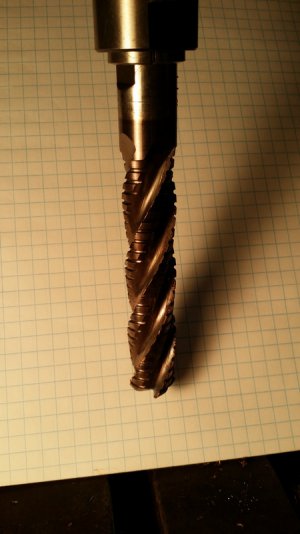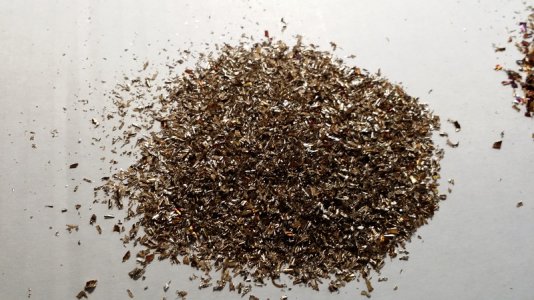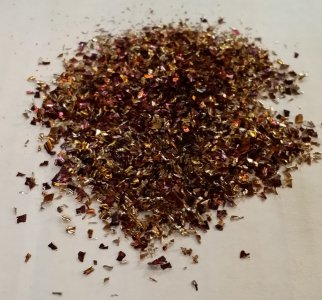- Joined
- Jan 2, 2014
- Messages
- 8,852
I posted earlier that I still had some chips on the mill table, here's some photos......
I was cutting silicon-bronze using a 3/4" diameter roughing mill running at 375 rpm(max speed of my 1916 Cincinnati machine):

Both of the following piles of chips were made with a feed of 2-7/8in per min.
The bright ones were from a shallow cut:

These discoloured ones were from a deeper cut:

There's a bunch you can tell from the look of the chips.
Comments are very welcome!
-brino
I was cutting silicon-bronze using a 3/4" diameter roughing mill running at 375 rpm(max speed of my 1916 Cincinnati machine):

Both of the following piles of chips were made with a feed of 2-7/8in per min.
The bright ones were from a shallow cut:

These discoloured ones were from a deeper cut:

There's a bunch you can tell from the look of the chips.
Comments are very welcome!
-brino
Last edited:

